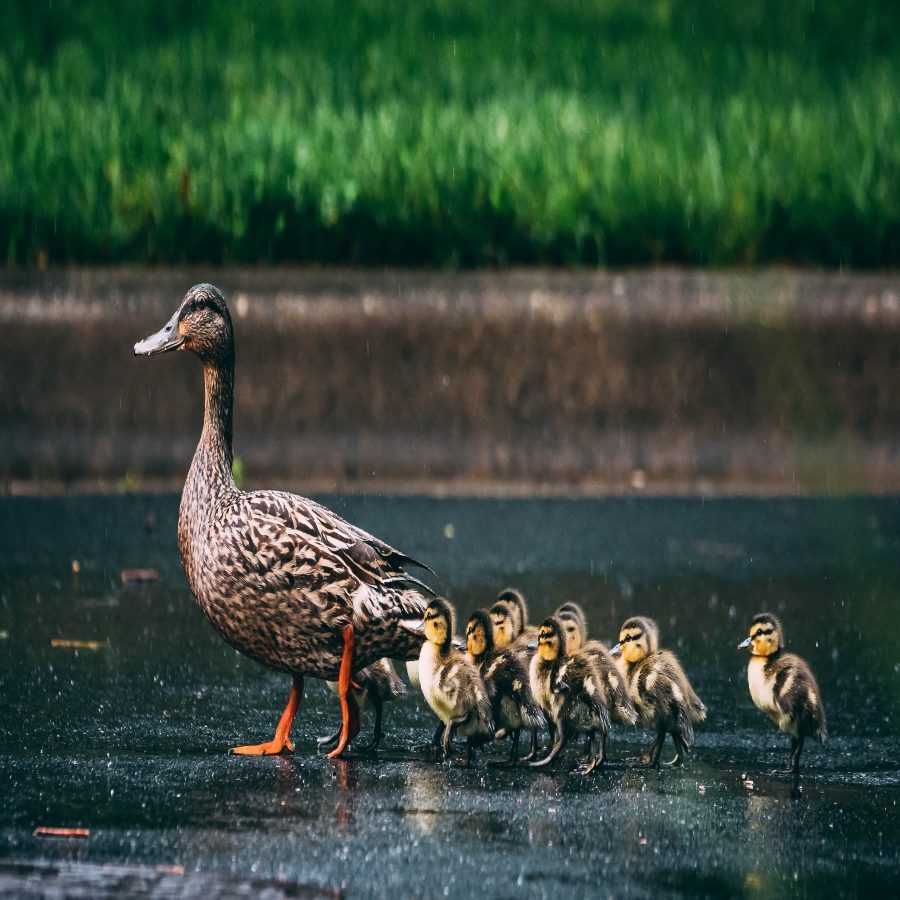
Woman of the Hour
Sixty minutes before she steps in front of a speeding van, she blenders bird seeds with berries for her vegan twelve-year old, who dirties their kitchen each Saturday for some type of raw bake-off, but cannot get up early enough on schooldays to mix her own shake. As a mother, she practices patience. Her smile tempers, yet never quite masks the discontent beneath her Dutch exterior. She looks like she’s haunted by a dreaded tampon jingle or smells her own rancid blood.
Fifty minutes before she loses her breath in a death-threat flash, she secretly dictates a dentist appointment into her husband’s calendar and sets up a reminder for seven days ahead. She should neither startle him with a sudden visit nor let him know about the event for too long in advance. As a wife, she protects. If she lets his anxieties spin out of control, the whole household will suffer. There are limits to what their healthy diet can cure.
Forty minutes before the driver hits his brakes with the power of blind rage, she verifies in her mother’s carelog whether the scheduled caregiver has checked in on time to drive her mother to the oncologist. As a daughter, she’s at a distance. In her early forties, when she herself experienced a cancer scare and vomited in buckets, she stopped trying to gain the love she had missed as a child. She’s a confident woman. If only because she refuses to be in a story where people see her flattened under a misery the weight of a truck.
Thirty minutes before small-town bystanders look up from their phones and applaud her, she sends an emoji-rich message to her bestie, who suffers from envy as though it were a chronic back pain. As a friend, she condones. Each time she meets with such a special person in her life, she feels as though she’s spreading a picnic blanket under a blossoming jasmine tree and is handed an elixir. The pleasure she derives from holding hands can be greater than from sex.
Twenty minutes before she spots the family of ducks crossing the street in a line, she calls her new team member with detailed instructions on how to prepare the brand-identity presentation later that day. Last but not least: The smell of fresh coffee is key. As an employee, she goes beyond the call of duty. Not in the hopes of advancing her career, but because she cannot bear to be a spectator of a catastrophe.
Ten minutes before she bursts out laughing at the thought of being a brave woman for the sake of seven birds, she unintentionally catches an eye and drops her saved dryer quarters in a held-out can. As a heroine, she is pathetic. Who has time for saving the world? Her father, apparently, who moved to Oaxaca at the age of seventy-three and became an activist for the Mixtecs. She turned the news of his departure over in her hands, like a sharp thing she’d picked up from the grass. Is it true that she has his jaws?
At the time of her near death, she steps off the sidewalk into traffic, not seeking to shatter her bones, yet distracted by the unexpected image of herself as a broken vase, a woman in jagged pieces. The van screeches to a halt in a cliché she fails to notice. There’s the stink of burnt rubber, and a memory flickers, ghostlike. As a child, she was a theater talent. There she stood on the makeshift stage of their shoddy living room rug, performing a self-written play in a self-made costume, hair in a ponytail hidden beneath a hat, acting out all the parts and getting applauded by the merry adults, including her mother, for so convincingly being anyone but herself.
Claire Polders is a Dutch author of fiction and nonfiction. Her latest of five books is A Whale in Paris (Atheneum, Simon & Schuster, 2018), a historical novel for younger readers. Her short prose has been widely published in literary journals, including TriQuarterly, Prairie Schooner, Tin House, Electric Literature, Denver Quarterly, and Fiction International. She’s currently finishing a speculative novel for adults, writing a memoir about elder abuse in Florida, putting together two short prose collections, and collaborating on several novels for younger readers.
Submit Your Stories
Always free. Always open. Professional rates.
